 The Alberta Law Reform Institute is looking at a potential gap in the law relating to support for a child from a person standing in the place of a parent. In Alberta, a child can apply for support while the person is alive, but not after the person’s death. The Institute proposes changing the law to allow a child to apply for family maintenance and support from the estate of a person who stood in the place of a parent and is also conducting a consultation to gather feedback on its proposals. Get the report and participate in the survey on their website.
0 Comments
 Let the Alberta Law Reform Institute know how the Dower Act has affected your work at bit.ly/dowersurvey. The Dower Act in Alberta is a law that protects the property interests of a married person if the couple’s home is legally owned solely by the other spouse. It applies to the “homestead”, which means the house and some attached land where the owner spouse lived during the marriage. The Dower Act hasn’t been updated significantly since 1948 and is not serving Albertans bests interests. The Alberta Law Reform Institute is reviewing the Dower Act and would like to hear from lawyers, real estate agents, mortgage brokers, bankers, trustees-in-bankruptcy, and other individuals who regularly encounter dower rights in their work. At this stage, we are particularly interested in hearing about any practical challenges or complications that arise because of dower rights. Let ALRI know how the Dower Act has affected your work at bit.ly/dowersurvey. Our consultation takes roughly 5-10 minutes to complete depending on your feedback. The Alberta Law Reform Institute values your input and thanks you for your participation. All responses will remain confidential and anonymous. 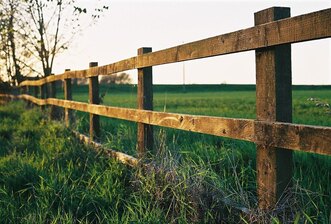 ALRI is recommending that the law of adverse possession be abolished in Alberta. This change would prevent new claims from being brought in the future, but would not affect claims that have been resolved or filed with the court before the change comes into effect.This change would mean that a registered owner of land could recover possession at any time and would not have to act within the 10-year limitation period that currently applies. If adverse possession is abolished, claims regarding lasting improvements to the wrong land under section 69 of the Law of Property Act would have a more prominent role in resolving disputes concerning possession of land. To facilitate equitable resolution of disputes, ALRI recommends that an assign of the lasting improvement should not have to prove whether the person who made the improvement believed it was their land. This change would make section 69 consistent with how courts have applied it. ALRI also recommends that section 69 claims can be brought at any time. Download Final Report 115, Adverse Possession and Lasting Improvements to Wrong Land  A police record check is a search of police databases to determine if they contain any entries (information) relating to an individual. Many employers, volunteer organizations and others use police record checks as a screening tool. That is, they use police record checks to assess applicants’ suitability for opportunities. Determining what information should be disclosed in the results of a police record check involves balancing public safety interests with an applicant’s privacy and human rights. ALRI conducted some preliminary research to determine whether it should undertake a police record check law reform project. As part of its research, ALRI compared Ontario’s police record check legislation with the AACP procedures. ALRI determined that the AACP procedures could be improved, but recognized that they are relatively new and that the AACP is open to revising them. ALRI’s paper contains its preliminary research findings. Its publication is intended to promote discussion about police record check practices in Alberta. Get the paper here. 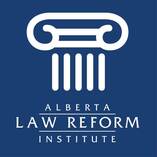 ALRI is looking to prepare a list of English statutes potentially in force in Alberta. As the first part of that work, we would like to highlight the English statutes that are in regular use. We would appreciate hearing from you about which English statutes still come up in your area of practice. You can let us know by answering our one question survey available at bit.ly/OldLawAB. Having a shorter list of what is known to be in force and regularly applied is likely to be more useful than a long list of everything that might be in force. Identifying what's on that longer list will be the focus of a later part of our work. See our full article in the Canadian Bar Association Alberta Branch's latest edition of Law Matters. 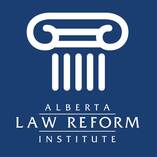 The Alberta Law Reform Institute (ALRI) is excited to announce that its most of its publications are now available on CanLII! ALRI's publications will continue to be freely available on its website at www.alri.ualberta.ca but will now be accessible on Canada's most popular virtual legal library. See ALRI's announcement here. 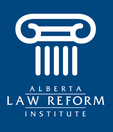 2017-2018 was a busy and productive year for ALRI. The Institute released four publications and celebrated its 50th anniversary. Read the full annual report.  In its latest report, ALRI makes recommendations to change the law for how common-law couples divide property if their relationship breaks down. This Report also recommends changes to the law for married couples who lived together before marriage and for adult interdependent partners who are not common law couples. Why is Law Reform Needed? 2016 Census data indicates that 320,260 Albertans consider themselves to be in common-law relationships. If common-law couples break up and cannot agree how to divide their property, they need to rely on complex judge-made law to divide their property. ALRI considers that the law of unjust enrichment is overly complicated, costly to litigate, and unpredictable. Legislated rules would better guide parties to make their own agreements and settle disputes. Couples who lived together before marriage and adult interdependent partners may also need to rely on judge-made law for property division and would also benefit from a clearer legislated framework for property division. Download Final Report 112, Property Division: Common-law Couples and Adult Interdependent Partners here 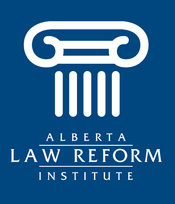 On occasion, a court must determine whether a proposed witness is credible or competent to give evidence. The question arises with child witnesses, and may also arise for adults with cognitive impairment. Proposed witnesses can be subject to intrusive and confusing questioning that has little to do with their ability to tell the truth. Alberta legislation about competence has not kept pace with modern knowledge about children's abilities, and fails to address adults with cognitive impairment. It also has a gap affecting witnesses who use alternative means of communication. Modern psychological research has shown that old assumptions about child witnesses are unfounded. While federal legislation has changed to reflect this fact, the Alberta Evidence Act has not. Final Report 111 makes recommendations that will bring Alberta's legislation up-to-date and inline with federal legislation. Download Final Report 111, Competence and Communication in the Alberta Evidence Act The Alberta Law Reform Institute has released four reports since October 2017, all of which have been recently featured by the local and legal media.
Property Division for Common-law Couples and Adult Interdependent Partners Inter-provincial Recognition of Substitute Decision-making Documents Competence and Communication in the Alberta Evidence Act |
Categories
All
Archives
February 2024
|

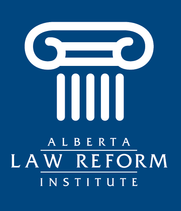
 RSS Feed
RSS Feed
